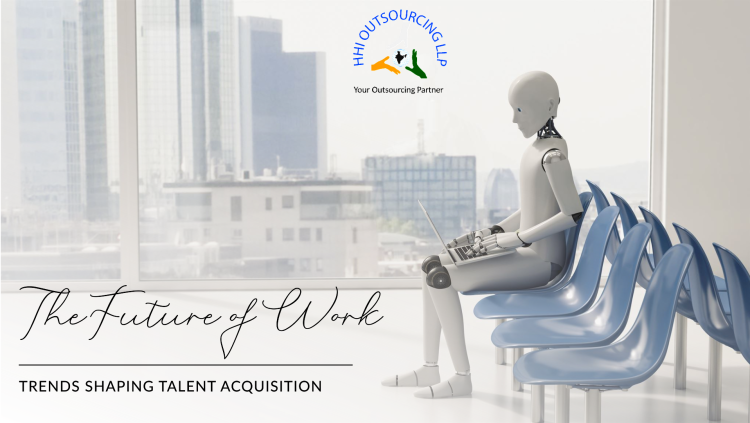The Future of Work: Trends Shaping Talent Acquisition


The Future of Work: Trends Shaping Talent Acquisition
Navigating the Future of Work: Trends in Talent Acquisition
As we move further into the 21st century, the landscape of talent acquisition is evolving at an unprecedented pace. With technological advancements, shifting workforce expectations, and a focus on diversity and inclusion, businesses must adapt their hiring strategies to attract top talent. Here are key trends shaping the future of work in the United States.
1. Remote Work as the New Norm The pandemic accelerated the acceptance of remote work, and many companies have embraced this model permanently. This shift broadens the talent pool, allowing businesses to hire the best candidates regardless of geographical location. However, organizations must implement effective remote onboarding processes and maintain strong communication channels to ensure team cohesion and productivity.
2. The Rise of the Gig Economy More professionals are opting for freelance and contract work, valuing flexibility and autonomy over traditional employment. Businesses can tap into this gig economy to access specialized skills for short-term projects. However, companies should develop clear policies and frameworks to manage and integrate gig workers into their teams effectively.
3. Artificial Intelligence in Recruitment AI is transforming the recruitment process by streamlining candidate sourcing and improving efficiency. From resume screening to interview scheduling, AI tools can help eliminate bias and enhance decision-making. However, it’s crucial to maintain a human touch in the hiring process to ensure candidates feel valued and understood.
4. Emphasis on Diversity and Inclusion Diversity and inclusion have become central to talent acquisition strategies. Companies are prioritizing diverse hiring practices to create more equitable workplaces. Implementing structured interviews and bias training can help organizations attract a broader range of candidates, fostering innovation and creativity.
5. The Importance of Employer Branding In a competitive job market, strong employer branding is essential. Businesses need to communicate their values, culture, and benefits effectively to attract top talent. Utilizing social media, employee testimonials, and engaging content can help build a positive image that resonates with potential candidates.
Conclusion The future of talent acquisition is dynamic and multifaceted. By embracing remote work, adapting to the gig economy, leveraging AI, prioritizing diversity, and strengthening employer branding, businesses can effectively navigate the evolving landscape and secure the talent they need to thrive.
